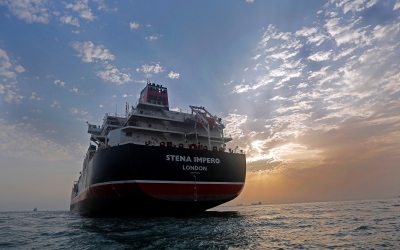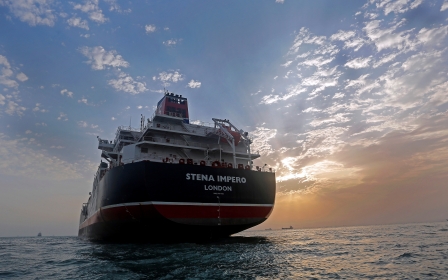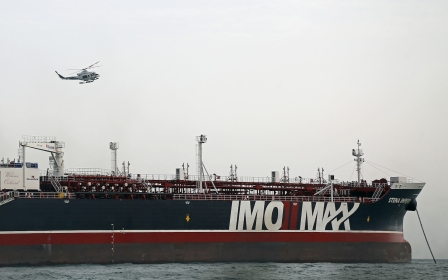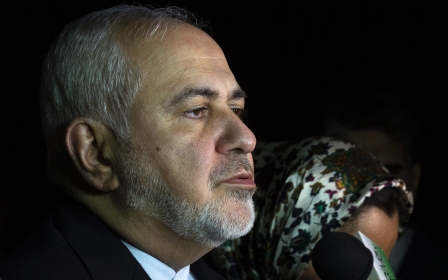UK to join US-led maritime security mission in Gulf waters
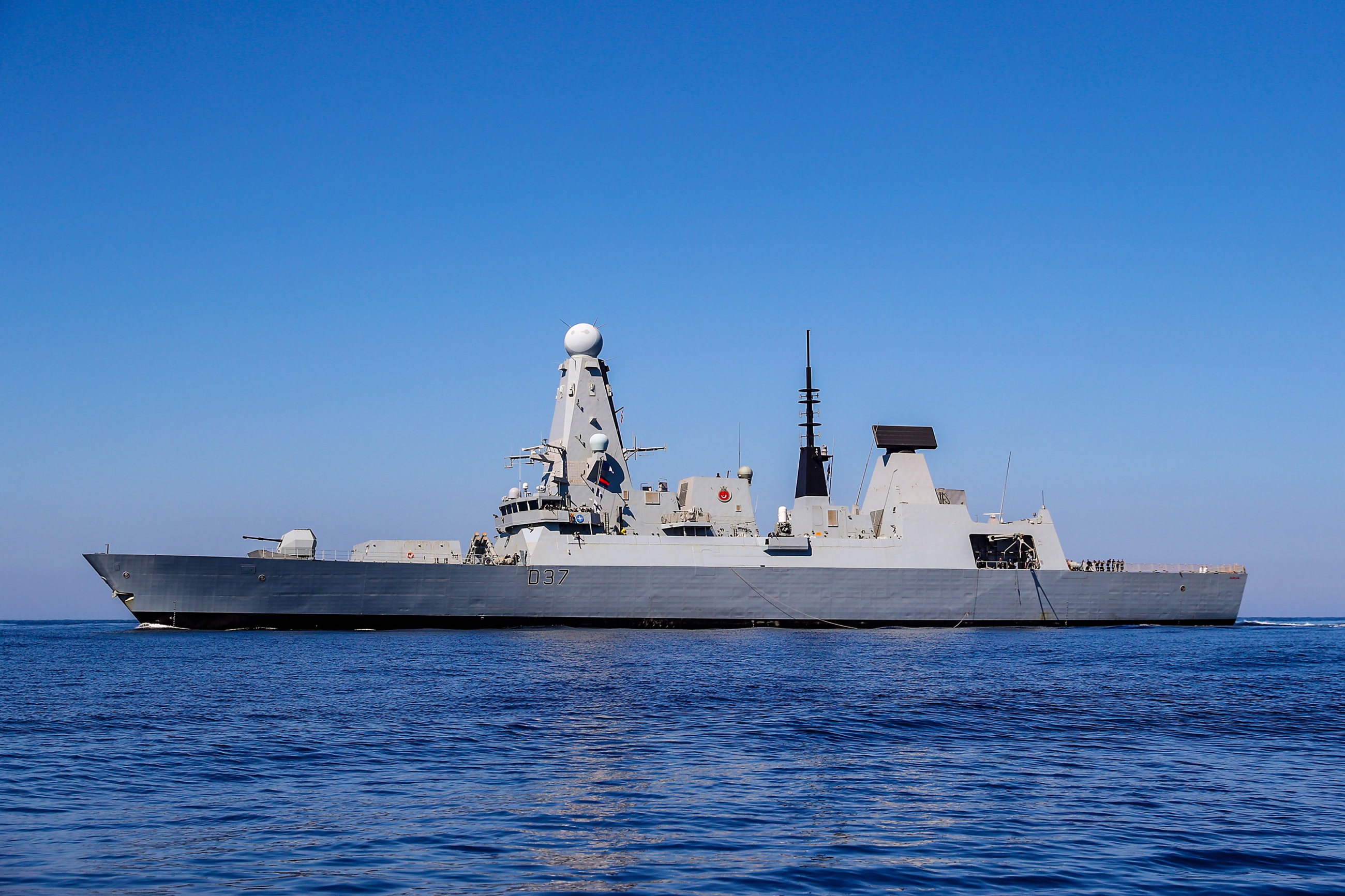
Britain has announced plans to join a US-led maritime mission in the Gulf to protect vessels travelling through the Strait of Hormuz, where Iran seized a British-flagged ship last month.
British officials stressed on Monday that London hadn't changed its policy on Iran, but joining the United States' mission is Prime Minister Boris Johnson's most significant non-Brexit foreign policy move to date.
"It is vital to secure the freedom for all international shipping to navigate the Strait of Hormuz without delay, given the increased threat," said British Defence Secretary Ben Wallace, as reported by Reuters.
"The deployment of Royal Navy assets is a sign of our commitment to our UK-flagged vessels and we look forward to working alongside the US and others to find an international solution to the problems in the Strait of Hormuz.”
Just two weeks ago, Britain had called for a European-led mission in Gulf waters, a proposal that received initial backing from a handful of European Union countries.
New MEE newsletter: Jerusalem Dispatch
Sign up to get the latest insights and analysis on Israel-Palestine, alongside Turkey Unpacked and other MEE newsletters
At the time, former UK foreign secretary Jeremy Hunt stressed that the UK's proposal for a European-led force would not involve backing Washington's hardline stance against Iran, Reuters reported.
The mission "will not be part of the US maximum pressure policy on Iran because we remain committed to preserving the Iran nuclear agreement", Hunt said.
Now, the UK has become the first European country to publicly announce plans to join what it said is a US-led "international maritime security mission" in the area.
Tanker traffic through the Strait of Hormuz - through which a fifth of the world's oil passes - recently became the focus of an ongoing standoff between Iran and the US, which has beefed up its military presence in the Gulf since May.
Last month, Iran's Revolutionary Guards seized a British tanker, Stena Impero, near the strait. Iran said the vessel had breached "international maritime rules", an allegation that was rejected by British officials.
The seizure came two weeks after Britain intercepted an Iranian oil tanker near Gibraltar, accusing it of violating sanctions on Syria.
Scepticism in Europe
Britain insisted on Monday that its decision to join the US-led mission doesn't change its Iran policy.
"Our approach to Iran hasn't changed," Foreign Secretary Dominic Raab said. "We remain committed to working with Iran and our international partners to de-escalate the situation and maintain the nuclear deal."
But plans to launch the US-led mission - which US General Joseph Dunford first announced in early July - have been met with scepticism by several European leaders, who say it may escalate ongoing tensions in the region.
'We remain committed to working with Iran and our international partners to de-escalate the situation and maintain the nuclear deal'
- UK Foreign Secretary Dominic Raab
US President Donald Trump's administration is carrying out a "maximum pressure" campaign against Iran, levying economic sanctions against the country and several of its top leaders.
Trump's decision last year to pull out of a 2015 nuclear accord with Iran has also strained ties between Washington and some of its allies in Europe, who remain committed to that agreement.
"I'm very sceptical about that [US-led mission], and I think that's a scepticism that many others share," Olaf Scholz, Germany's vice chancellor and finance minister, told ZDF television last week.
Scholz said it was important to avoid a military escalation in the region and that such a mission carried the risk of being dragged into an even bigger conflict.
"That's why I think this is not a good idea," he said.
The tanker dispute has tangled the UK in the diplomatic differences between the European Union's big powers - which want to preserve the nuclear deal - and the US.
That agreement was dealt a fresh blow by the announcement on Monday that Iran planned to further reduce compliance with the 2015 accord in about a month's time if European countries failed to act to protect it from US sanctions.
Iran also has threatened to block all energy exports out of the Strait of Hormuz if it is unable to sell oil - as promised by the 2015 deal - in exchange for curbing its uranium enrichment programme.
"With the continuation of the inaction of the Europeans in carrying out their commitments [to the nuclear deal] ... Iran will take a third step [in reducing commitments] in approximately one month," said Behrouz Kamalvandi, spokesman for the Atomic Energy Organization of Iran.
Iran had increased its stockpile of heavy water above 130 tonnes and its reserve of enriched uranium above 300kg, Kamalvandi told IRIB news agency. Those limits were set by the 2015 accord.
Kamalvandi said that all Iran's actions were reversible, however, if Britain, France, Germany, Russia and China eventually secured it protection from Washington's sanctions.
Since it pulled out of the Iran deal, the Trump administration has reimposed a series of sanctions on several key Iranian industries.
Iran seizes Iraqi tanker
On Sunday, Iran's elite Islamic Revolutionary Guard Corps (IRGC) diverted an Iraqi tanker to its shores and detained its seven-person crew, state media reported.
IRGC Commander Ramezan Zirahi was quoted as saying the vessel was carrying 700,000 litres of fuel in the Gulf, which he said were being smuggled "for some Arab countries".
'Iran is responsible for the security and safety of the Strait of Hormuz and the region'
- Mohammad Javad Zarif, Iranian foreign minister
"Iran used to forgo some maritime offences in ... [the] Gulf but will never close [its] eyes anymore," Foreign Minister Mohammad Javad Zarif told a televised news conference in Tehran.
"Iran is responsible for the security and safety of the Strait of Hormuz and the region."
Meanwhile, Britain has deployed a destroyer HMS Duncan and a frigate HMS Montrose to the Gulf to accompany UK-flagged vessels through the strait.
So far, 47 ships have been accompanied by the naval vessels, British officials said.
Later this year, another Type 23 Frigate, HMS Kent, will take over from HMS Duncan, while HMS Montrose completes planned maintenance. HMS Montrose will remain stationed in the Middle East until 2022.
Middle East Eye delivers independent and unrivalled coverage and analysis of the Middle East, North Africa and beyond. To learn more about republishing this content and the associated fees, please fill out this form. More about MEE can be found here.


